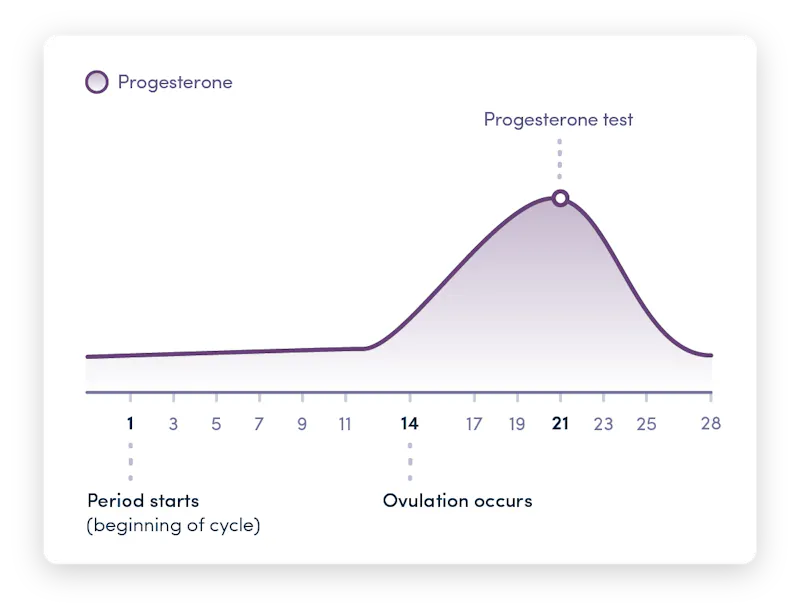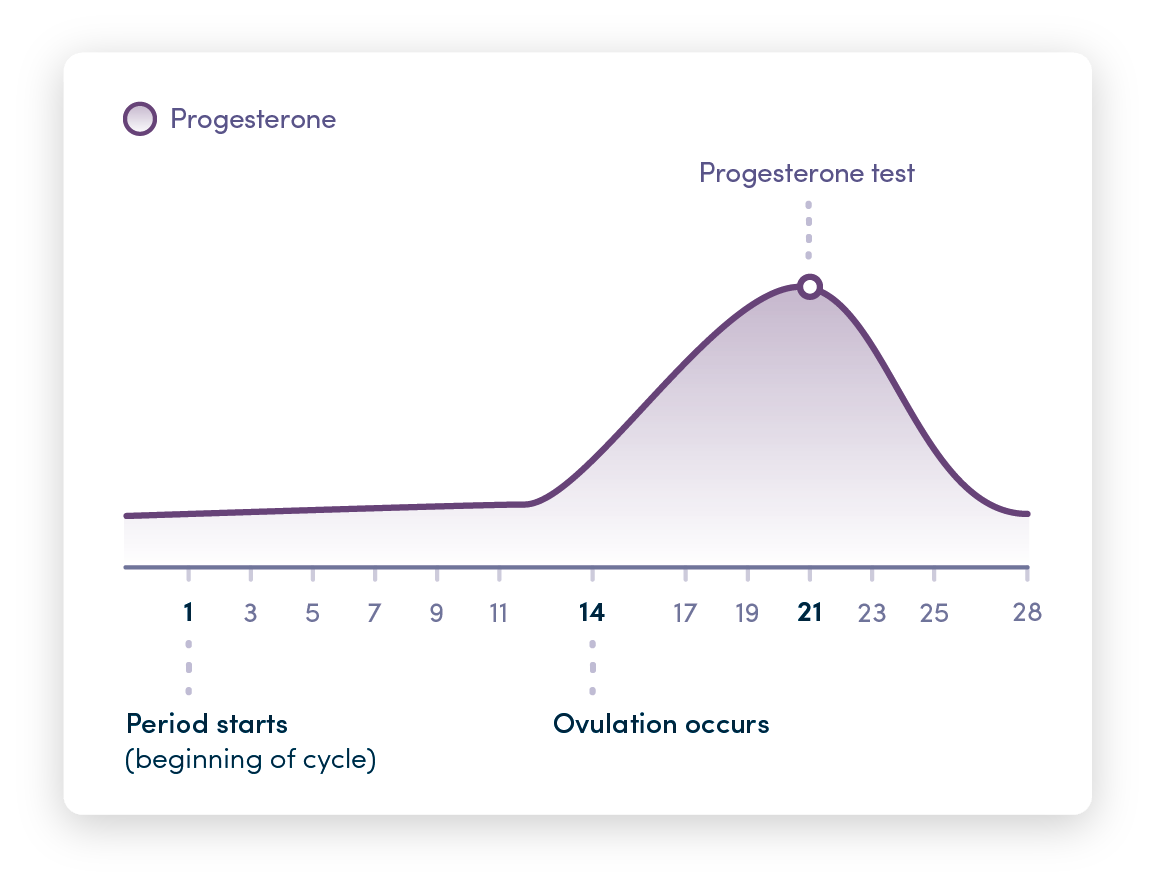Ovulation blood test: testing your progesterone levels
What's covered?



Progesterone is one of the main sex hormones produced by females. It plays a key role in preparing your body for potential pregnancy after ovulation. A progesterone blood test checks your progesterone levels at a particular time in your cycle — which can tell you if you’ve ovulated or not.
What is a progesterone test?
A progesterone blood test (often called a day-21 progesterone test) checks your progesterone levels at a particular time in your cycle. By measuring your progesterone levels when they're expected to peak (7 days before your period), it can tell you if you've ovulated or not.
If your progesterone levels are low, it suggests that you haven’t produced an egg and you won’t be able to get pregnant that month.
How do you prepare for a progesterone blood test?
Your doctor will collect a blood sample or you can do a home finger-prick blood test. After the sample is collected, it will be sent to a laboratory for analysis.
Some medications can affect your progesterone results, including:
- hormonal contraceptives — like the oral contraceptive pill, implant, and injection
- oestrogen and progesterone supplements
So if you’re taking any of these medications, it’s worth discussing it with your doctor beforehand.
When should you do a progesterone blood test?
Not everyone follows a 28-day cycle. So while a progesterone test is often referred to as a day-21 progesterone test, you should actually do this test 7 days before your period is due.
If you have irregular periods, the best approach is to:
- do a blood test on day 21 of your cycle
- repeat this test every 7 days until your next period starts

Who should do a progesterone test?
A progesterone blood test can be helpful if you:
- are actively trying or planning to get pregnant
- are tracking your cycle and want to find out whether you’re ovulating
- have a condition like PCOS — which could affect your periods and ovulation. You can check your hormone levels with a PCOS blood test.
What do your progesterone results mean?
The reference ranges and units used to measure your progesterone levels can vary depending on the lab that analyses your sample. But for guidance, the reference ranges used if you measured your levels 7 days before your period might be:
- 30-65.5 nmol/L — this indicates that you’ve ovulated
- 15.2-30 nmol/L —this indicates that it's possible you've ovulated but you might have done the test too early in your cycle
- 0-15.2 nmol/L — this indicates that you haven’t ovulated
Causes of high or low progesterone levels
If your results aren’t in the optimal or normal range, there are a number of reasons why this might happen. Low progesterone levels can be caused by:
- not ovulating — this can also happen if you did your test at the wrong time in your cycle
- menopause — your levels naturally drop as you reach menopause
- miscarriage
Consistently high progesterone levels might be due to pregnancy or an ovarian cyst. In very rare cases, it might be caused by ovarian cancer.
How to improve your progesterone levels
Your doctor can help you understand your progesterone results and talk to you about the next steps.
If your results indicate you’re not ovulating and you’re trying to get pregnant, your doctor might prescribe you medication like clomifene — stimulates ovulation.
Eating a healthy diet can help increase your progesterone levels, opt for foods rich in:
- magnesium — like pumpkin seeds, brazil nuts, soy, marmite, and dark chocolate
- zinc — like shellfish, legumes seeds, and nuts
- vitamin B6 — like chickpeas, tuna, salmon, chicken, potatoes, oats, soy, and bananas
- omega-3 fats (support general hormone production) — like oily fish, chia seeds, flaxseed, and walnuts
Managing your stress levels can also help support your hormone levels.
Cable, J. K., & Grider, M. H. (2020). Physiology, Progesterone. StatPearls [Internet].
Di Renzo, G. C., Mattei, A., Gojnic, M., & Gerli, S. (2005). Progesterone and pregnancy. Current Opinion in Obstetrics and Gynecology, 17(6), 598-600.
Dunson, D. B., Weinberg, C. R., Baird, D. D., Kesner, J. S., & Wilcox, A. J. (2001). Assessing human fertility using several markers of ovulation. Statistics in Medicine, 20(6), 965-978.
Haas, D. M., & Ramsey, P. S. (2013). Progestogen for preventing miscarriage. Cochrane database of systematic reviews, (10).